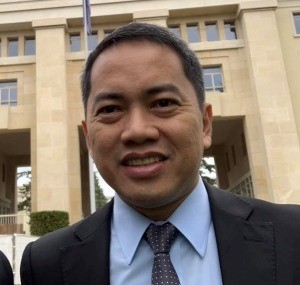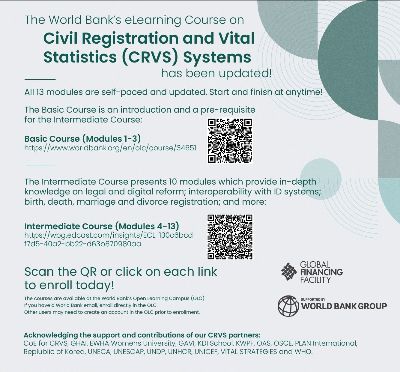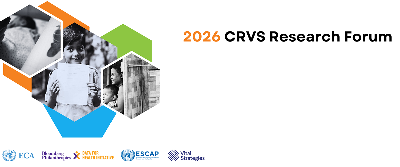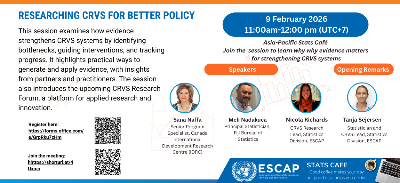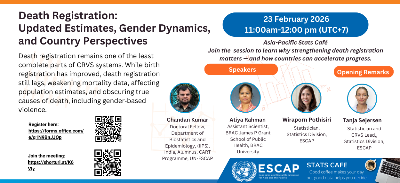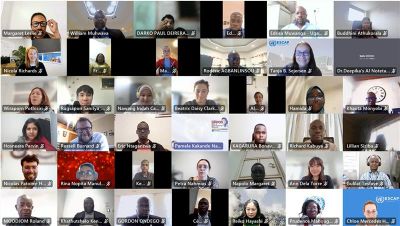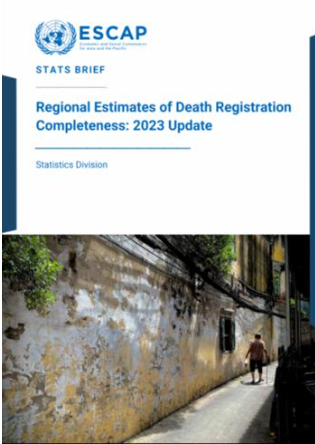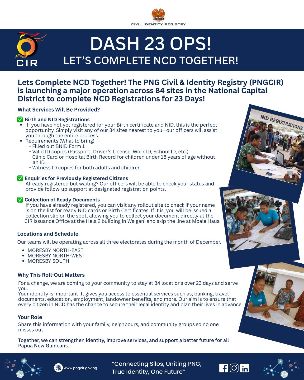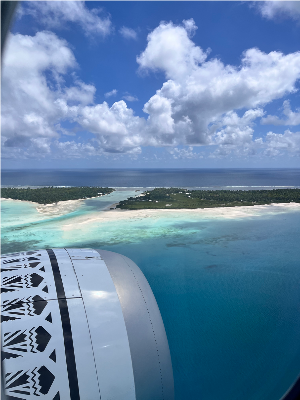Our community newsletter puts a spotlight on people who have gone above and beyond in their efforts to support CRVS programmes in Asia and the Pacific, raise awareness of CRVS issues or lead CRVS improvement efforts in their home country or in the region. This month, we would like to dedicate this issue of Insight to Melvin C. Suarez.
What is your current title and role?
Presently, I am a State Counsel under the Office of the Chief State Counsel, Legal Staff, of the Philippine Department of Justice (DOJ). I am also designated as a Protection Officer, and presently a Team Head of the DOJ-Refugees and Stateless Persons Protection Unit (DOJ-RSPPU).
A State Counsel assists the Secretary of Justice in the performance of his duties as Attorney General of the Government, and as ex-officio legal adviser of government-owned and controlled corporations (GOCCs) or enterprises, among others.
As DOJ-RSPPU Team Head, I initially review draft decisions on asylum and statelessness applications of my Team members. For more than a decade, I actively participated on advocacy, coordination, and monitoring missions, particularly, engagements with refugees, stateless persons, asylum seekers, stateless applicants, and persons at risk of statelessness (PAROS).
Can you please share with us a particular experience which highlighted the importance of CRVS to you?
I had this memorable experience involving an unprecedented project in 2014 between Philippines and Indonesia on the Registration and Confirmation of Nationality of Persons of Indonesian Descent (PID) in Southern Philippines, which was funded by the United Nations High Commissioner for Refugees (UNHCR).
The PID is a vulnerable and marginalized population composed of fisherfolks, farmers, laborers, and ordinary workers who lived in Mindanao. It is one of the populations identified by the Philippine Government in 2010-2011 to be at-risk of statelessness due to lack of birth registration and birth certificates to prove their nationality or citizenship.
Under the framework of the 2014 Philippine-Indonesia Joint Commission for Bilateral Cooperation (JCBC), the cited project (also known as PID project) was undertaken to address the nationality issues of these PID. The JCBC is the primary dialogue mechanism between the Philippines and Indonesia to review accomplishments on mutual collaboration initiatives, to exchange views on issues of mutual interest, and to consider plans for enhancing cooperation between the two countries.
The PID project resulted in the actual registration of 8,745 PID, and resolved the issue of their nationality whether they are Filipinos, Indonesians or limited dual citizens, as determined and confirmed by the Philippines and Indonesia, respectively. The cited project was hailed as a success and a milestone on statelessness in the Philippine context, and placed the Philippines as a “beacon of light” in the region in terms of resolving and reducing statelessness.
How are you currently involved in CRVS improvements?
I was proactive in advocating, together with relevant stakeholders, for issuance of birth certificates to foundlings (who are merely issued with a certificate of foundling) with entry of Filipino nationality in the birth certificate, after the Philippine Supreme Court rendered a landmark decision in 2016, holding that foundlings found in Philippine territory are presumed to be natural-born Filipino citizens. The said advocacy resulted in the issuance by the Philippine Statistics Authority (PSA) of guidelines for providing birth certificates to foundlings, and the subsequent enactment by Congress in 2022 of the Foundling Recognition and Protection Act, which grants Philippine citizenship to foundlings, among others.
Presently, I am engaged in the pilot and continued delayed birth registration initiatives for the Sama Bajaus – an indigenous people whose itinerant lifestyle had resulted in generations of lack of birth registration. Like the PID, and foundlings then, the Sama Bajaus, which are estimated at more or less 120,000, are similarly considered as PAROS by the government.
Also interesting is my involvement in the ongoing initiative to address the nationality issues of Persons of Japanese Descent (PJD), which refer to second generation of legitimate children of Japanese fathers and Filipino mothers born during Second World War. The PJD are also considered as PAROS due to the reported absence of their birth records in the Family Register of Japan showing their Japanese nationality link to their Japanese fathers but also of their failure to exercise their statutory right to elect Philippine citizenship upon reaching their majority age.
Furthermore, I am an alternate representative of the Department in the Inter-Agency Committee on Civil Registration and Vital Statistics (IACCRVS).
Which advice would you give to others trying to improve CRVS systems?
The legal significance of civil registration, and the ramifications for the lack of it, cannot be overemphasized. Extracting qualitative vital statistics is indeed intertwined with civil registration. Part of my “civil registration work” with the DOJ-RSPPU is actually stressing the importance of birth registration and in the acquisition of a birth certificate to establish the legal identity of a person, particularly, his nationality. Indeed, improving and strengthening the CRVS is aligned with the Sustainable Development Goal (SDG) of providing legal identity for all by 2030, and leaving no one behind.
More importantly, not only that birth registration prevents statelessness, including one from being considered at-risk of such status, it also minimizes, if not totally avoid, the risks of one becoming a victim of human trafficking, forced labor, sexual and criminal exploitation, and modern slavery, due to the lack of civil registration, particularly, on birth, which establishes the legal identity of a person.


